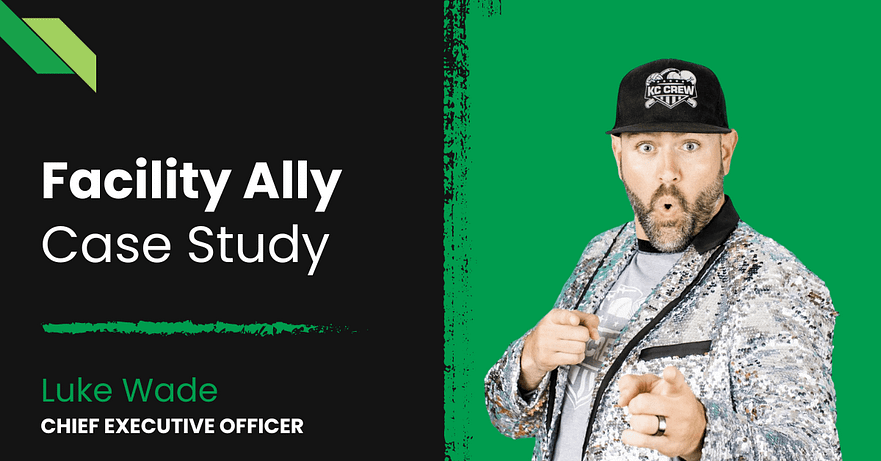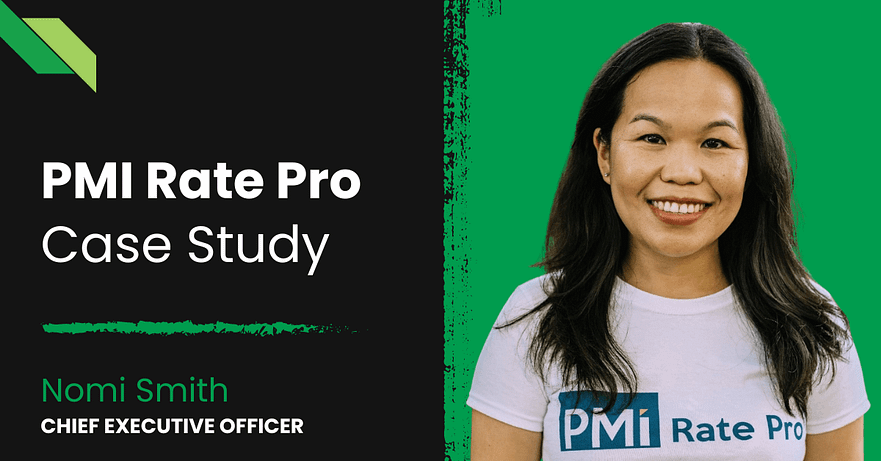1000+ Interviews Later, We Discovered This Is What Actually Matters
Technical skills are overrated in developer hiring. That’s a fact.
I know that sounds crazy coming from someone who’s interviewed over 1000 developers in the past five years. But here’s what the data shows: The developers who succeed long-term aren’t necessarily the ones who can solve algorithm puzzles the fastest.
They’re the ones who can work with humans.
Last month, a client called me frustrated. They’d hired a “rockstar” developer who scored perfectly on every coding challenge. LeetCode master. Could implement any algorithm you threw at him. Knew every design pattern by heart.
Six months later, he’d alienated the entire product team, refused to document his code, and built features that solved problems nobody had.
His technical skills were flawless. His impact on the business was devastating.
They let him go after burning through $180,000 in salary and lost productivity. The replacement—a developer with average technical skills but great communication—shipped more valuable features in his first month than the “expert” did in six.
It’s like buying a Ferrari without a steering wheel. All that horsepower is useless if you can’t actually get where you need to go.
Why Most Software Developer Interview Questions Miss the Point
Every developer interview follows the same predictable pattern:
- “Reverse this linked list”
- “Explain Big O notation”
- “Design a scalable system”
- “What’s your favorite programming language?”
Here’s what’s wrong with this approach: You’re testing computer science knowledge, not developer effectiveness.
I’ve watched brilliant algorithm solvers write unmaintainable code that other developers can’t work with. They can optimize performance by 20% but destroy team productivity by 50%.
It’s like hiring a surgeon based on how fast they can memorize anatomy textbooks while ignoring whether they can actually help patients. Or hiring singers who can read music perfectly but can’t carry a tune.
How to Hire Software Developers: What 1000+ Interviews Taught Me
After placing 300+ developers and conducting over 1000 interviews, I’ve discovered something most CTOs get wrong: The skills that get developers hired aren’t the skills that make them successful.
The Technical Wizards can solve any coding problem, but struggle to solve real business problems. They average 18 months before team conflicts force them out.
The Collaborative Builders might need to Google syntax occasionally, but create systems that teams actually want to maintain. These developers stay 3x longer and get promoted 73% faster.
Your current interview process is probably optimized for the wrong type.
This is what led me to develop The 5C Developer Assessment Framework—a methodology that tests the five critical capabilities that actually predict developer success.
The 5C Developer Assessment Framework
Stop testing algorithms. Start testing judgment. Here’s our proven approach based on 1000+ developer interviews.
C1: Communication Clarity
The Test: “A critical bug appeared in production right before a major client demo. The sales team is panicking, and the CEO wants updates every 10 minutes. How do you handle this?”
What to listen for:
- Do they explain their process for stakeholder communication during crises?
- Can they balance urgency with thorough investigation?
- Do they understand the business impact beyond just fixing code?
Red flag: They focus only on technical debugging and ignore human communication.
C2: Collaborative Problem-Solving
The Test: “You strongly believe your approach to solving a problem is better than what the team decided. The team lead disagrees. How do you handle this?”
What to listen for:
- Do they respect team decisions while advocating for their perspective?
- Can they present technical arguments in a way that builds consensus?
- Do they show flexibility when presented with good counterarguments?
Red flag: They either become combative or completely defer without discussion.
C3: Context Awareness
The Test: “A product manager gives you a vague feature request: ‘Make the user dashboard more intuitive.’ How do you turn this into something you can build?”
What to listen for:
- Do they ask clarifying questions about user needs and success metrics?
- Can they break down ambiguous requirements into specific, testable criteria?
- Do they consider user research and data to inform decisions?
Red flag: They start coding without understanding what problem they’re solving.
C4: Continuous Learning
The Test: “You need to implement a feature using a technology you’ve never worked with before. The project timeline is tight. How do you approach this?”
What to listen for:
- Do they have a structured approach to learning new technologies?
- Can they identify when to ask for help vs. when to research independently?
- Do they consider project risk and have backup plans?
Red flag: They either panic about the unknown technology or overconfidently claim they can learn anything instantly.
C5: Customer Impact Consciousness
The Test: “You’re deciding between two technical approaches: one that’s faster to implement but harder to maintain, and one that takes longer but is more robust. How do you decide?”
What to listen for:
- Do they consider business timeline, team capacity, and long-term costs?
- Can they gather relevant information to make informed trade-offs?
- Do they understand how technical decisions impact user experience?
Red flag: They make decisions based purely on technical elegance or personal preference.
Software Developer Skills Assessment: What Actually Predicts Success
Here are additional tests that reveal developer effectiveness:
The Technical Debt Dilemma
Question: “You discover the codebase you’re working with has significant technical debt. The business wants new features quickly. How do you balance these competing priorities?”
What to listen for:
- Can they articulate the business cost of technical debt?
- Do they propose incremental improvements alongside feature development?
- Can they communicate technical trade-offs to non-technical stakeholders?
Red flag: They either ignore technical debt completely or insist on rewriting everything.
The Code Review Philosophy Question
Question: “A junior developer submits code that works but doesn’t follow team conventions. How do you handle the code review?”
What to listen for:
- Do they balance code quality with developer growth and morale?
- Can they provide constructive feedback that teaches rather than criticizes?
- Do they understand the difference between preferences and requirements?
Red flag: They either rubber-stamp everything or tear apart code without offering guidance.
Best Software Developer Interview Questions for 2025
The questions that actually predict developer success focus on judgment, not memorization:
- “Walk me through how you’d approach [business problem] technically” – Tests problem decomposition
- “Describe a time when you had to explain a complex technical concept to non-developers” – Tests communication
- “How do you handle disagreement about technical decisions?” – Tests collaboration
- “Tell me about a project that didn’t go as planned” – Tests learning from failure
- “How do you stay current with technology while meeting project deadlines?” – Tests continuous learning
What Should You Ask in a Software Developer Interview?
The most predictive software developer interview questions test real-world scenarios:
- Instead of: “Implement a binary search tree”
- Ask: “How would you explain a technical delay to frustrated stakeholders?”
- Instead of: “What’s the time complexity of this algorithm?”
- Ask: “How do you decide when to optimize code vs. ship new features?”
- Instead of: “Design a distributed system”
- Ask: “Walk me through how you’d onboard onto an unfamiliar codebase”
- Instead of: “What’s your favorite framework?”
- Ask: “How do you handle working with legacy code you didn’t write?”
Software Developer Skills Assessment Guide
Skills That Actually Matter vs. Skills We Usually Test
High-Prediction Skills (The 5 C’s):
- Communication Clarity: Explaining complex concepts to different audiences
- Collaborative Problem-Solving: Building consensus and working through disagreement
- Context Awareness: Understanding business needs and user impact
- Continuous Learning: Adapting to new technologies and changing requirements
- Customer Impact Consciousness: Connecting technical decisions to business outcomes
Low-Prediction Skills (But Still Tested):
- Algorithm and data structure memorization
- Ability to solve coding puzzles under time pressure
- Knowledge of specific frameworks or languages
- Academic computer science theory
- Whiteboard coding performance
How to Score Software Developer Technical Interviews Using the 5C Framework
Look for judgment and collaboration skills, not just technical knowledge.
Great software developers (5C Strong):
- Ask about business context before proposing technical solutions
- Explain complex concepts in simple terms
- Show examples of learning from mistakes and adapting approaches
- Demonstrate empathy for users, teammates, and stakeholders
- Balance ideal solutions with practical constraints
Poor software developers (5C Weak):
- Jump to technical solutions without understanding the problem
- Can’t explain their reasoning to non-technical people
- Blame tools, teammates, or circumstances when things go wrong
- Focus on technical perfection while ignoring business needs
- Resist feedback or collaboration on technical decisions
The “Perfect” Developer Who Destroyed Team Productivity
Two years ago, I interviewed a developer who was technically flawless. Perfect algorithms. Clean code. Could debate architecture patterns for hours. Every CTO’s dream on paper.
But when I applied the 5C Framework, red flags started appearing:
- Communication Clarity Test: “How did you handle code reviews?” “I usually just rewrote their code myself. It was faster than explaining why it was wrong.”
- Collaborative Problem-Solving Test: “Tell me about a time you disagreed with a technical decision.” “I proved I was right by building a better version on my own time.”
- Context Awareness Test: “How did you work with the product team?” “I mostly ignored their requests and built what I knew users actually needed.”
This developer saw himself as the hero of every story. His technical skills were exceptional, but he scored zero on the 5C Framework.
The client almost hired him based on his coding performance. Six months later, they thanked me—their previous “10x developer” had caused three junior developers to quit and deadlocked every technical decision with ego battles.
The hidden cost: $240,000 in turnover and lost productivity from one “perfect” technical hire.
It’s like having a brilliant race car driver who refuses to work with the pit crew. All that talent becomes worthless when they can’t function as part of a team.
The 87% Rule: Why Communication Trumps Code
Here’s the most important discovery from 1000+ interviews: Developers who communicate well stay 87% longer than those who don’t.
After analyzing performance data across 300+ placements, these “soft skills” emerged as the strongest predictors of success:
1. Communication Clarity (89% correlation with success)
Great developers can explain complex technical problems to anyone. They write clear documentation, give useful code reviews, and update stakeholders appropriately during projects.
The Ferrari Analogy: Technical skills without communication is like a Ferrari without a steering wheel—impressive power, but you can’t get where you need to go.
How to test: Ask them to explain their most complex project to you as if you’re a product manager.
2. Collaborative Problem-Solving (84% correlation with success)
Great developers can advocate for their ideas while remaining open to feedback. They build consensus rather than impose solutions.
The Orchestra Analogy: Even the most talented violinist can’t make beautiful music if they won’t listen to the conductor or play in harmony with other musicians.
How to test: Present a technical decision with multiple valid approaches and see how they evaluate trade-offs.
3. Context Awareness (81% correlation with success)
Great developers understand how their technical decisions affect users, timelines, and business outcomes. They optimize for business value, not just technical elegance.
The GPS Analogy: Technical knowledge without context awareness is like GPS without destination input—lots of capability, but no useful direction.
How to test: Ask how they prioritize technical improvements versus new feature development.
4. Continuous Learning (76% correlation with success)
Great developers can quickly adapt to new technologies, changing requirements, and evolving team processes without losing productivity.
How to test: Ask about a time they had to learn something completely new under time pressure.
5. Customer Impact Consciousness (73% correlation with success)
Great developers connect their code to real user experiences and business outcomes. They think beyond implementation to actual impact.
How to test: Ask how they measure whether their technical work is successful.
What Our Clients Say About The 5C Assessment Framework
“Full Scale’s 5C framework revolutionized our hiring. The developers don’t just write good code—they make our whole team better. Their communication skills and collaborative approach have improved our entire development process. We’ve had zero personality conflicts in 18 months.”—CTO at a cloudtech solutions company
“Other developers we hired were technically skilled but couldn’t work effectively with our product team. Full Scale’s 5C-vetted developers bridge the gap between technical and business requirements better than our local hires ever did.”—VP of Engineering for a fintech company
“The difference is incredible. Our previous developers were brilliant but caused constant friction. Full Scale’s developers are technically competent AND make everyone around them more productive. Our sprint velocity increased 40%.”—CTO for a fintech client
“We spent eight months interviewing local developers with perfect coding skills who couldn’t explain their work to stakeholders. Full Scale got us three 5C-strong developers who excel at both technical delivery and business communication.”—Tech founder for a retail analytics platform
The Data: What 1000+ Interviews Actually Revealed
Developer Retention by Interview Focus
- Algorithm-focused interviews: 52% retention at 18 months
- Communication-focused interviews: 87% retention at 18 months
- 5C Framework assessment: 94% retention at 18 months
Business Impact by Developer Type
- Pure technical hires: 23% negative impact on team productivity
- Communication-strong hires: 67% positive impact on team productivity
- 5C Framework hires: 89% positive impact on team productivity
Cost Analysis
- Traditional technical hiring: $185,000 average cost per bad hire
- 5C Framework hiring: 68% reduction in hiring mistakes
- Full Scale methodology: 78% reduction in total hiring costs
The 87% Rule in Action
- Developers scoring high on Communication (C1): 87% longer retention
- Developers scoring high on all 5 C’s: 94% retention and 73% faster promotion rates
Why Most Companies Keep Hiring the Wrong Developers
It’s easier to test coding skills than people skills.
Most technical interviewers aren’t trained to evaluate communication, collaboration, or business judgment. So they default to algorithm questions that feel “objective.”
But objectivity doesn’t equal effectiveness.
The uncomfortable truth: Companies hire developers who can solve puzzles, then wonder why they can’t solve business problems.
What successful companies do differently: They test for the skills that actually predict success—the 5 C’s—alongside technical competence.
Great code that nobody can maintain, understand, or build upon isn’t actually great code. It’s technical debt with a fancy algorithm.
How to Hire Software Developers Who Actually Deliver
We don’t just test coding ability. We test developer effectiveness using the proven 5C Framework.
Our Collaboration-First Interview Method evaluates:
- Technical competence (yes, this still matters)
- Communication clarity with different audiences
- Collaborative problem-solving approach
- Context awareness and business impact understanding
- Continuous learning and adaptation capabilities
- Customer impact consciousness
- Cultural fit for remote/distributed teams
Why this works: The best developers aren’t just coding machines—they’re collaborative builders who make entire teams more productive.
The Full Scale 5C Assessment Difference
Every developer in our network has demonstrated mastery of both technical skills and the 5 C’s. They’ve worked effectively with product teams, communicated complex decisions clearly, and contributed positively to team dynamics.
Our proven Collaboration-First vetting process:
- Technical competence verification (necessary but not sufficient)
- 5C Framework assessment across all five capabilities
- Communication evaluation with various stakeholder types
- Collaborative problem-solving simulations
- Business judgment and context awareness scenarios
- Cultural fit evaluation for distributed teams
Results our clients consistently see:
- 94% developer retention rate after 18 months
- 67% improvement in cross-functional collaboration
- 78% fewer team conflicts and personality issues
- 45% faster feature delivery due to better communication
- 52% reduction in technical debt accumulation
- 89% positive impact on overall team productivity
The 5C Advantage: When you work with Full Scale, you get developers who excel at both writing great code AND working great with humans—the combination that actually drives business success.
Stop hiring coding machines. We’ve cracked the code on identifying developers who make entire teams more productive, not just individual contributors who work in isolation.



